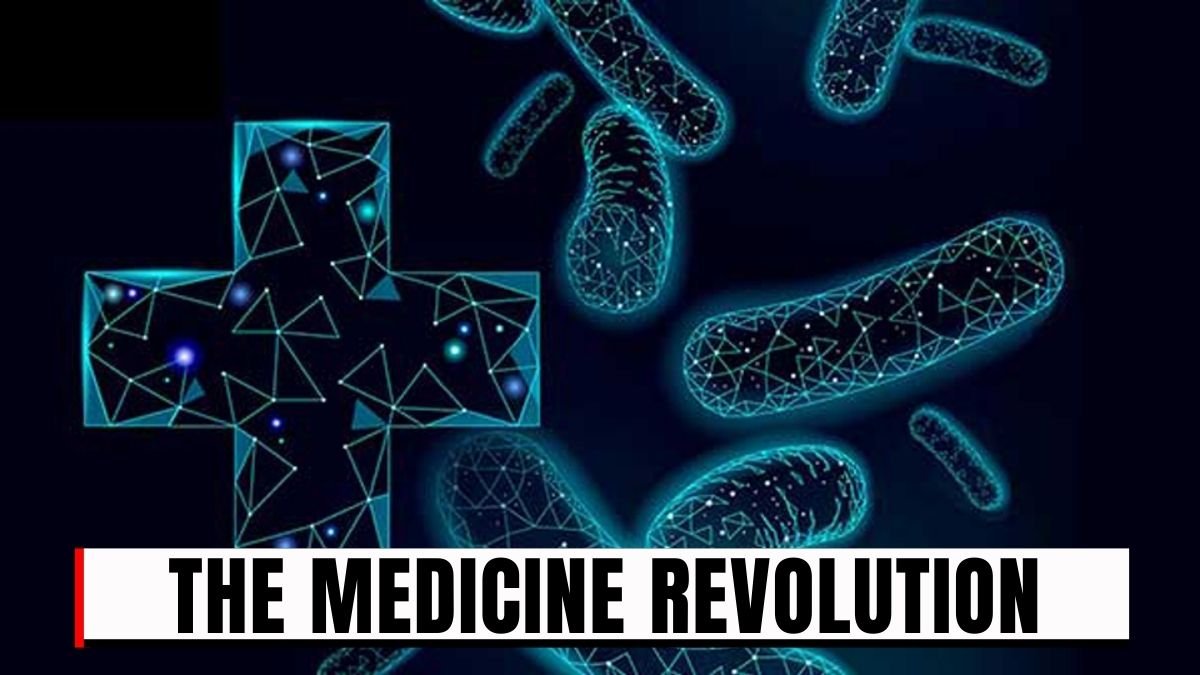The Medicine Revolution: In the last few decades, there has been a major revolution in the world of science and research, which is called the “Gut Microbiota Revolution”. This revolution was made possible by new techniques, including the study of microorganisms in culture-independent ways. Until now, the human body was viewed only from the perspective of eukaryotic cells, i.e. our main body cells. But now we have started to understand that the body is not made up of only these cells, but along with these, innumerable prokaryotic cells i.e. microorganisms also play an important role in it. Including these microorganisms, scientists have started to see the human body as a “holobiont”.
The study of microbiome is so important because it not only gives us an opportunity to understand our biological structure, but also has the potential to change the direction of medical science. Especially in the field of personalized medicine, the role of microbiome will become even deeper in the coming times.
What is microbiome and why is it so important?
Microbiome refers to the community of microorganisms present in our body, which live in various parts such as intestine, mouth, skin, urinary tract, and even uterus. Earlier it was believed that many parts of our body are completely bacteria-free, but recent research proved this thinking wrong. Now it has been proved that almost every part of the body has the presence of microbiome in some form or the other.
In particular, the gut microbiome is the most studied area. The gut microbiome is not only linked to digestion, but it is also deeply linked to our immune system, mental health, hormonal balance and many chronic diseases.
Role of microbiome in personalized medicine
Our traditional genome is the same in about 90 percent of people. That is, at the genetic level we are very similar. But if we talk about diversity, then it is the microbiome that makes us different from each other. Scientists believe that more than 90 percent of our individual diversity comes from the microbiome.
This is the reason why in future the diagnosis, treatment and selection of medicines for any disease will be done keeping in mind the microbiome of a particular person. This approach is called personalized medicine.
Relation between gut microbiome and diseases
The gut microbiome plays an important role not only in gastrointestinal diseases but also in diseases of other parts of the body.
In gastrointestinal diseases, it has been observed that dysbiosis i.e. imbalance in the gut microbiome causes many diseases. This imbalance creates a disparity between pro-inflammatory and anti-inflammatory bacteria, which can lead to inflammation in the gut, diverticulitis and other problems. Patients suffering from gallbladder stones have also been found to have a different microbiome, and the balance of bacteria changes after gallbladder surgery. In irritable bowel syndrome, there is also a clear difference between the microbiome of healthy people and patients. Interestingly, the consumption of foods such as caffeine also affects the microbiome.
The gut microbiome has also been found to play a role in non-digestive diseases. It may be involved in urinary tract infections, especially recurrent cystitis. The gut microbiome has also been closely linked to thyroid diseases related to the immune system. The gut microbiome may even prove helpful in identifying potential complications after heart surgery. It also plays an important role in the field of mental health. For example, the energy and lipid metabolism characteristics of the microbiome in patients with schizophrenia may predict which patients will respond better to probiotic therapy.
Other microbiomes: new possibilities
Microbiomes other than the gut are now a focus of research. Bacteria in the mouth may contribute to several rheumatic diseases and are being studied in depth using artificial intelligence and machine learning. The tonsil microbiome has been linked to chronic tonsillitis and sleep apnea in children.
New links have also emerged between cancer and the microbiome. The microbiome may play a role in cancers such as mesothelioma and thymoma. Similarly, the notion that the uterus is completely sterile has also changed. Recent research suggests that the uterine microbiome may be involved in the development of endometrial cancer and may have a strong relationship with the gut microbiome.
Conclusion
The study of microbiome is showing us a new picture of the human body. It is not just limited to digestion or infections, but is also linked to complex diseases like heart disease, thyroid, mental health and cancer. In the coming years, microbiome will be the basis of personalized medicine, where the treatment of every patient will be decided according to his individual microbial profile.
